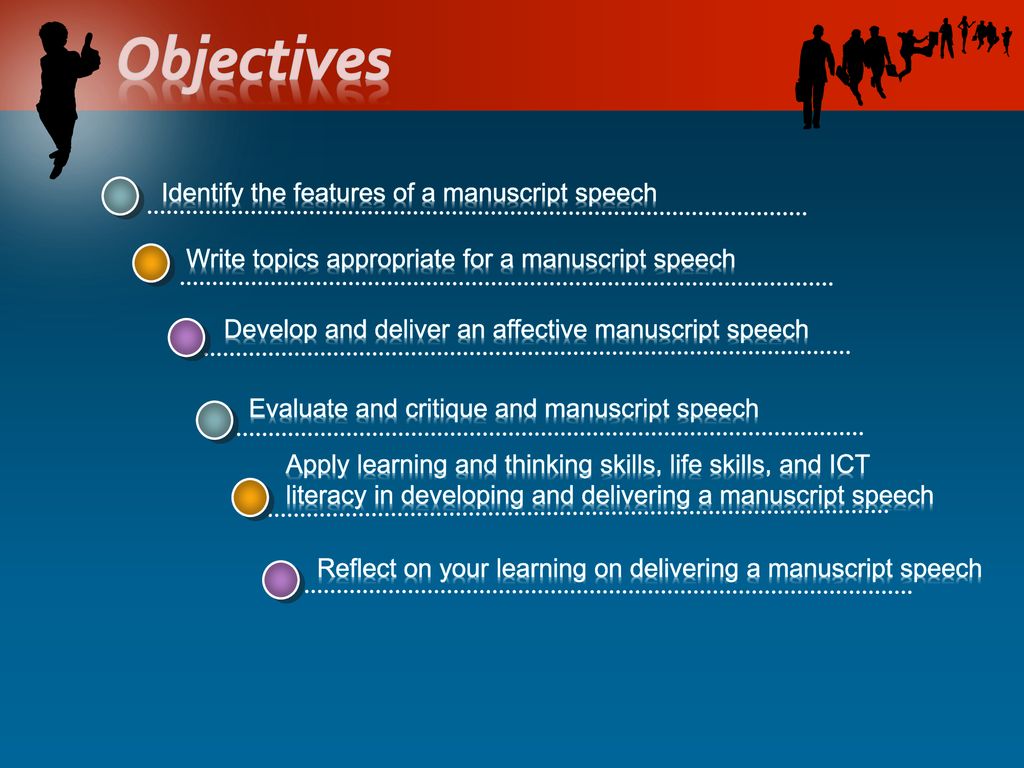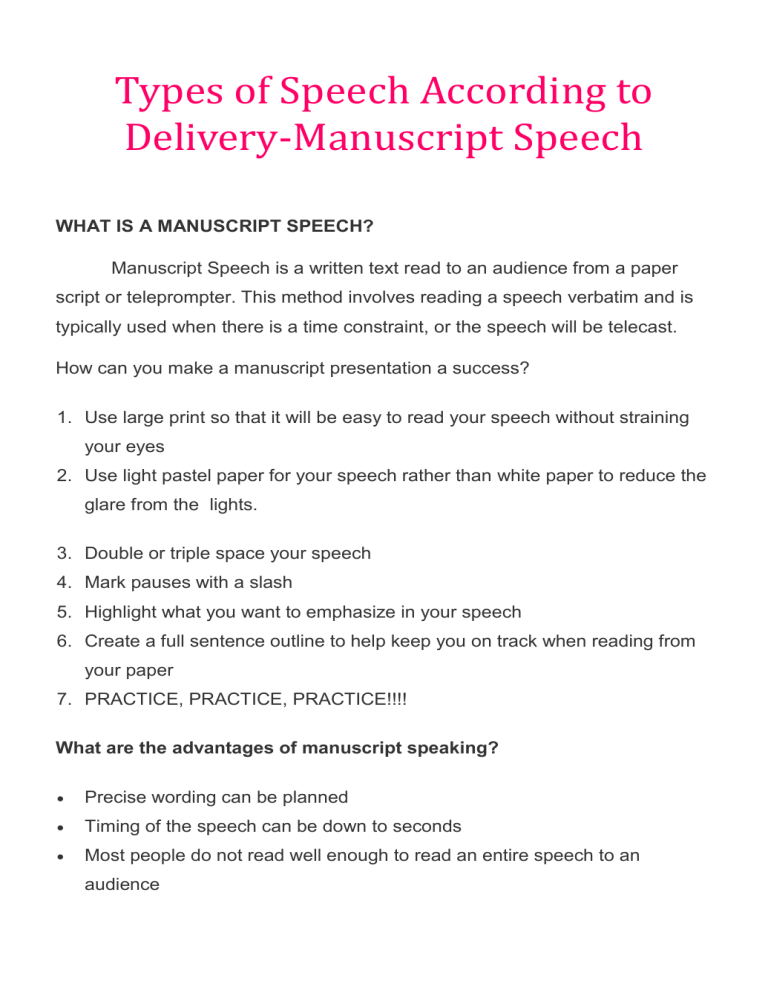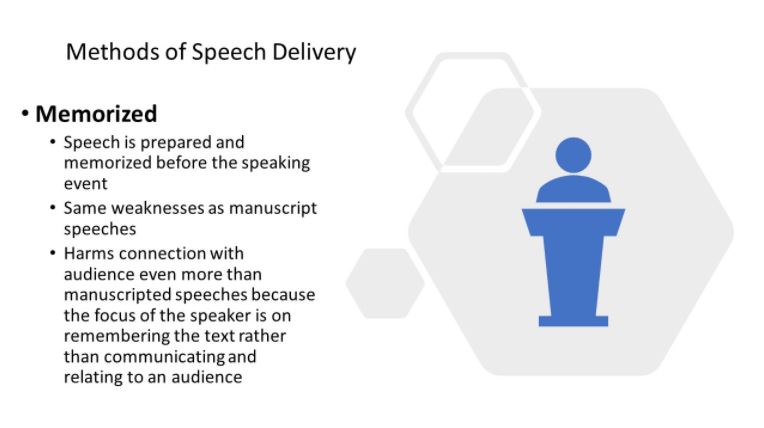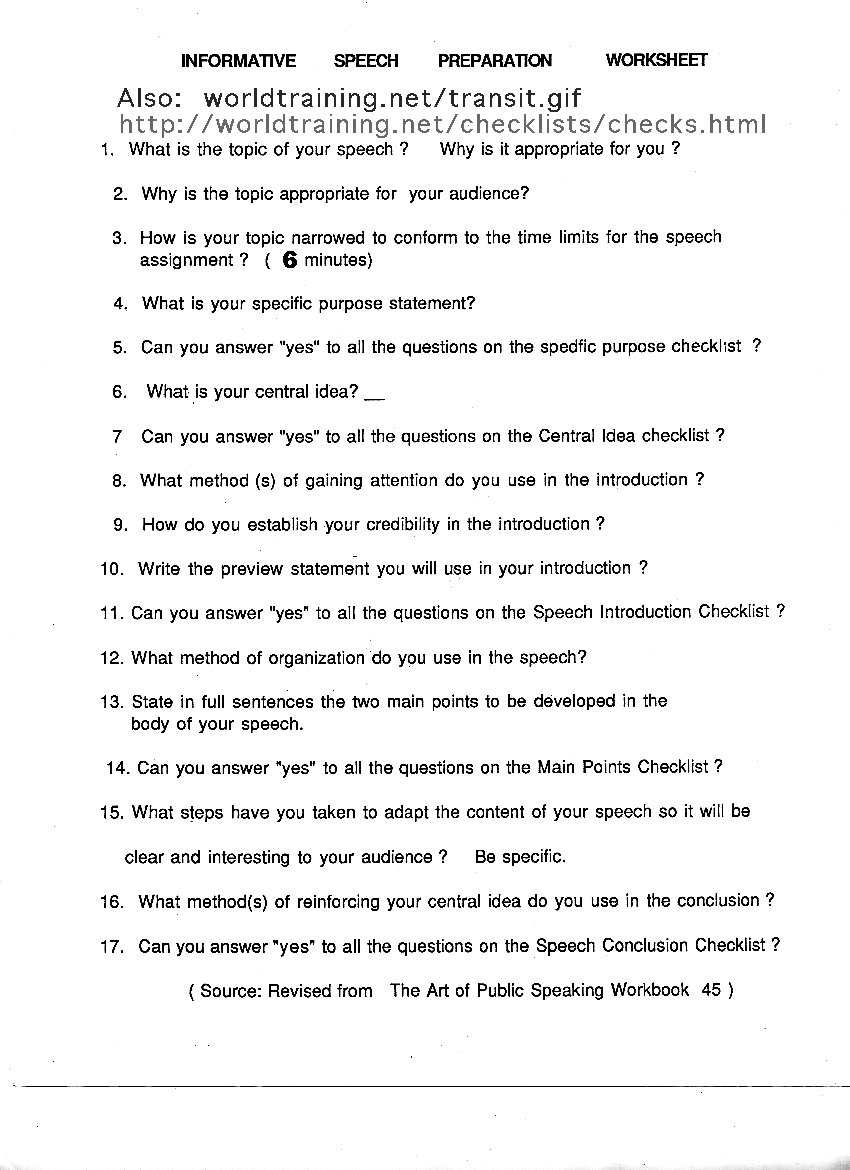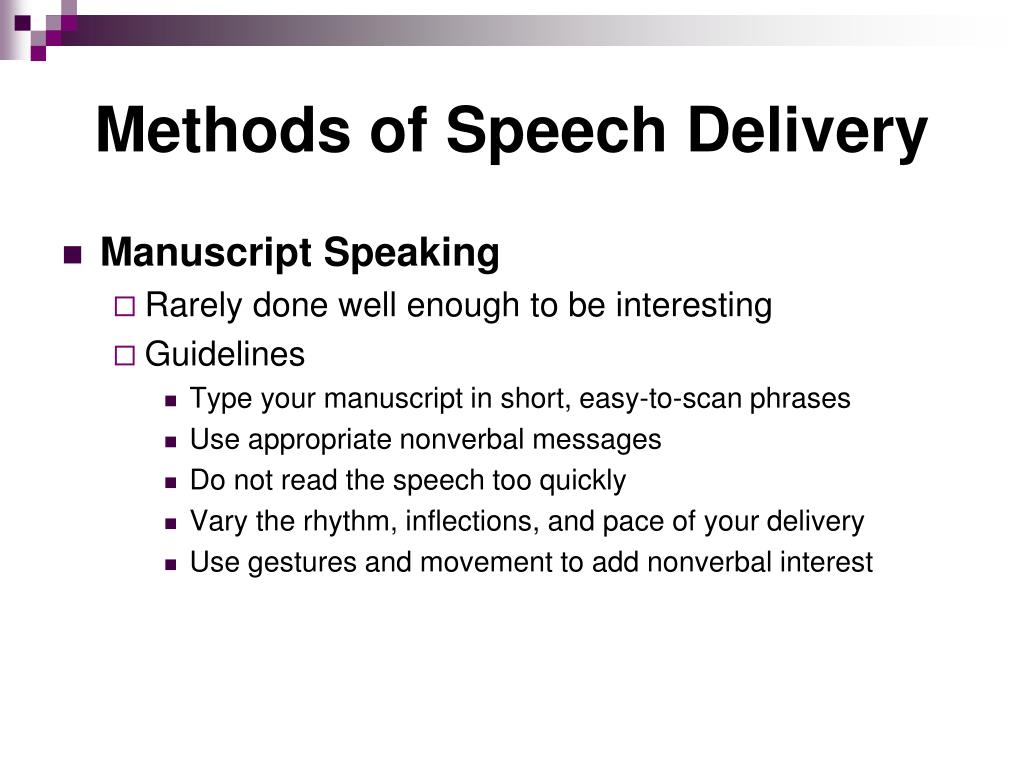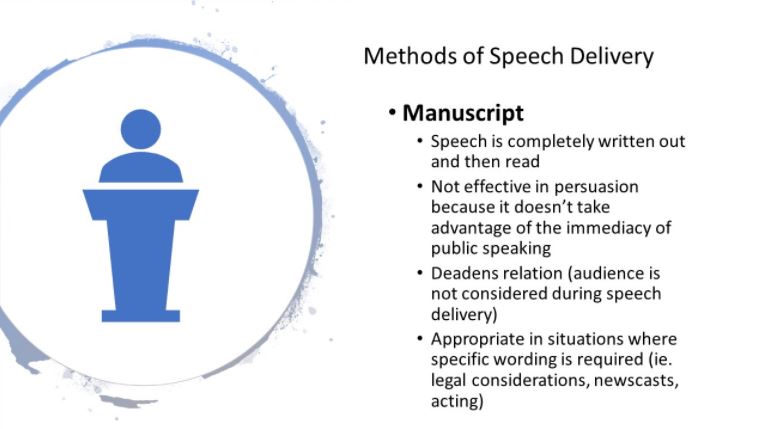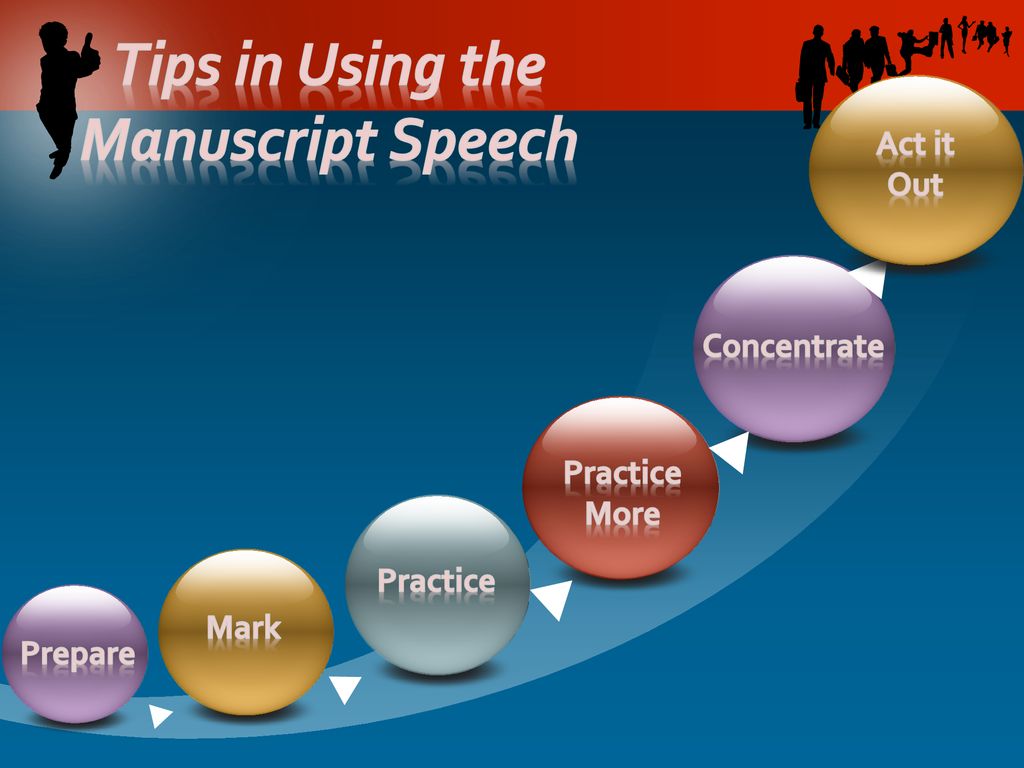Manuscript speech delivery refers to the practice of reading a prepared script or text verbatim while giving a speech. This method of delivery can be useful in a variety of situations, such as when a speaker wants to ensure that they are conveying a message accurately and in a specific way, or when the material being presented is complex and requires precise language. However, manuscript speech delivery also has its drawbacks, and it is important for speakers to consider the pros and cons of this approach and to use it appropriately.
One major advantage of manuscript speech delivery is that it allows speakers to deliver their message with a high degree of accuracy. Because the speech is written out and rehearsed beforehand, there is less room for error or deviation from the intended message. This can be especially important in situations where the information being presented is technical or otherwise requires precise language. By reading from a prepared script, speakers can ensure that they are conveying the material accurately and effectively.
Manuscript speech delivery can also be useful for speakers who are nervous or anxious about public speaking. Because the script is written out in advance, speakers can rehearse and become familiar with the material, which can help to reduce anxiety and increase confidence. In addition, reading from a script can also help speakers to stay on track and keep their thoughts organized, which can be especially helpful for those who are prone to getting nervous or flustered while speaking in public.
However, manuscript speech delivery also has its drawbacks. One major disadvantage is that it can make a speech feel less natural and spontaneous. When a speaker is reading from a script, they may not be able to engage with the audience as much as they would if they were speaking extemporaneously. This can make the speech feel less authentic and less engaging, which can be a turn-off for some audiences.
Another drawback of manuscript speech delivery is that it can be difficult for speakers to gauge the audience's reaction to their message. When a speaker is reading from a script, they may be so focused on their own words that they do not have the opportunity to observe the audience and adjust their message accordingly. This can make it harder for speakers to connect with their audience and effectively communicate their message.
Overall, manuscript speech delivery can be a useful tool for speakers in certain situations, but it is important for speakers to consider the pros and cons of this approach and to use it appropriately. When used judiciously, manuscript speech delivery can help speakers to convey their message accurately and effectively, but it should not be relied upon too heavily as it can detract from the authenticity and spontaneity of a speech.

